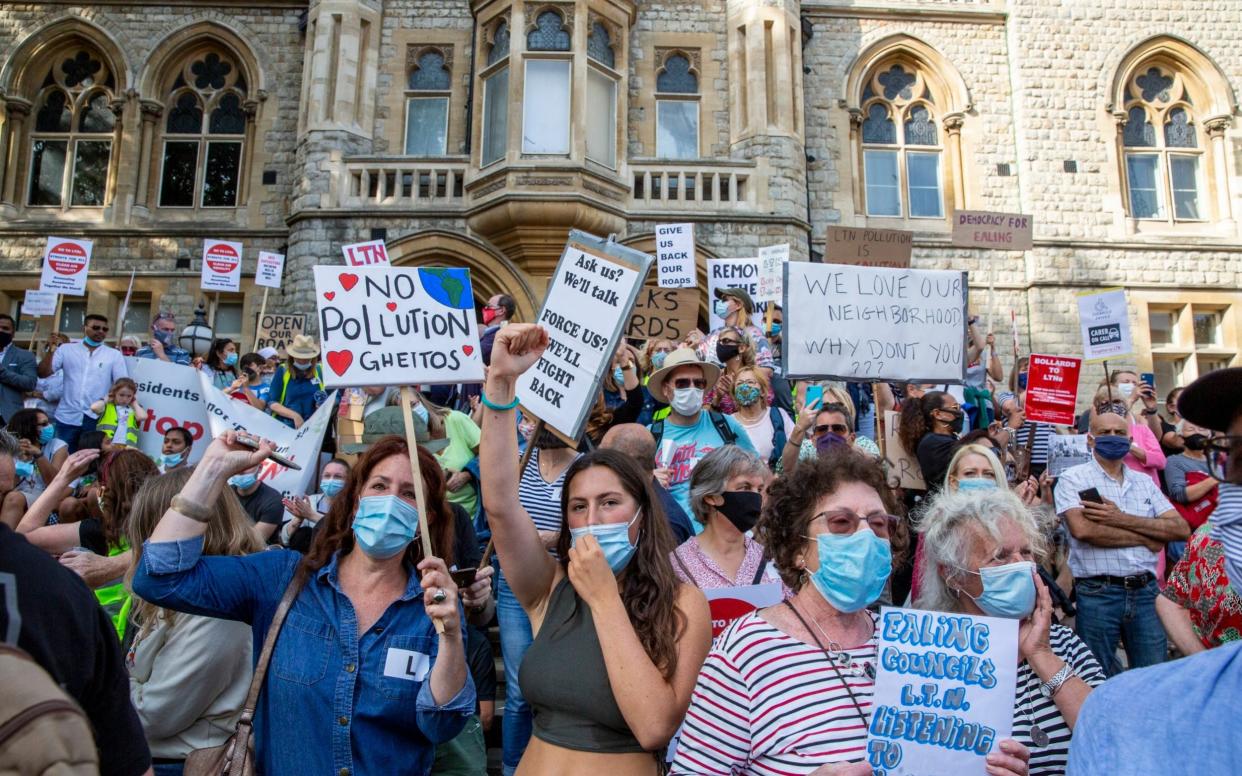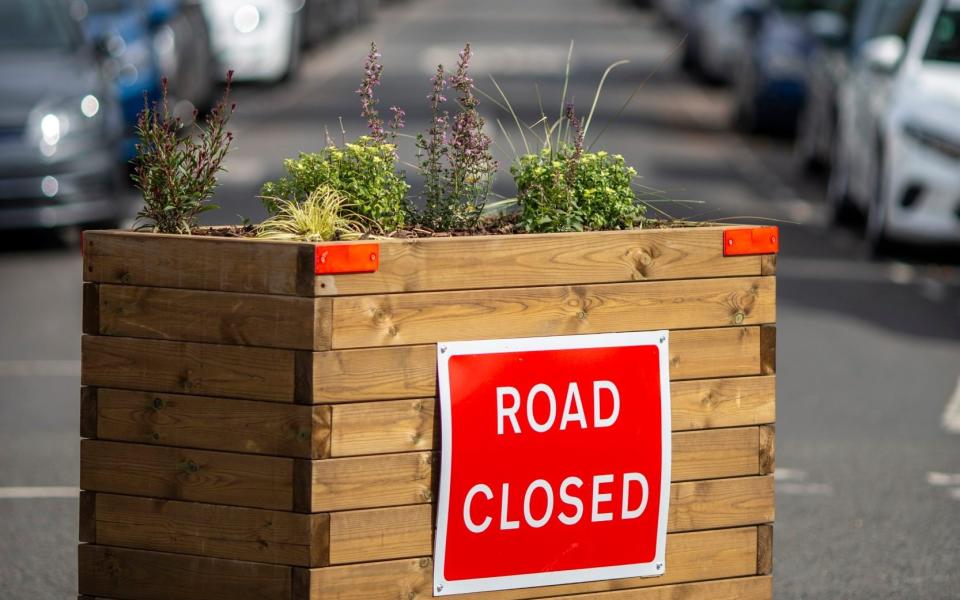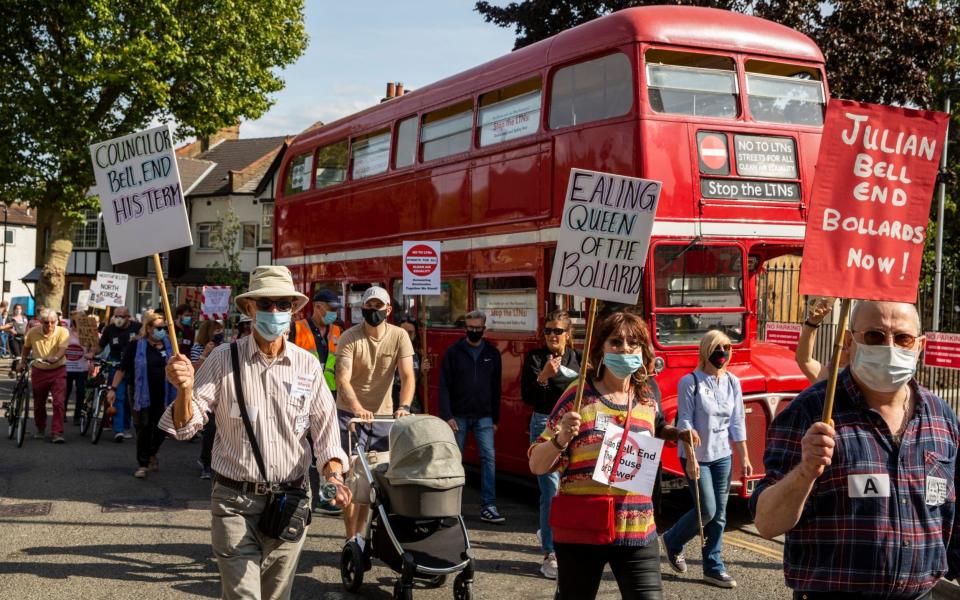Green roads protests as ambulance concerns grow

Paramedics struggling to reach life and death emergencies because of road closures introduced as part of the Government’s green transport revolution have been asked to contact a council “urgently” over safety fears for residents.
Ealing Council has issued London’s ambulance, police and fire services with specialist keys to unlock barriers introduced as part of the emergency response to coronavirus.
The move follows a series of claims emergency services responding to 999 calls have been thwarted by new road layouts.
In a letter, seen by the Sunday Telegraph, Councillor Julian Bell, leader of Ealing Council, told Garrett Emmerson, chief executive of the London Ambulance Service, he was “concerned by reports” of delays caused by road closures.
“We have received a number of second-hand reports from residents about ambulance responses being delayed due to them being unable to pass through barriers,” he wrote.
“Additional keys for the bollards have been delivered to the local ambulance service to ensure that there is good supply of these for all crews.”

He asked paramedics to contact him “urgently” over their concerns, as well as the possibility satellite navigation systems were not being updated and new bollards were proving difficult to unlock.
The move comes after thousands of people held demonstrations in London yesterday claiming so-called ‘Low Traffic Neighbourhoods” are causing gridlock on major, increasing air pollution and stifling trade.
Demonstrators were buoyed by an announcement from the Tory-led Wandsworth Council that it had suspended its LTN schemes because they caused “chaos” and “excessive amounts of pollution”.
A video from Tooting High Street in the borough showed an ambulance and fire appliance stuck in severe traffic but blocked from using the cycle lane by a row of bollards. In contrast, to the roads the cycle lane was empty.
In the last few weeks, paramedics trying to reach an 82-year-old retired teacher who had a serious fall in the Northfield area of Ealing had to navigate nine road closures around the injured man’s home.
Speaking on condition of anonymity, his 78-year-old partner, also a retired teacher, said the crew took 30 minutes to find his street.
“We are very worried about these road closures.” the man’s husband said. “If it had been a matter of life or death that lost half an hour could have been critical.”
A week earlier paramedics also called to Northfields were said to have been livid after being unable to unlock a bollard. They were said to have been delayed 20 minutes and forced to walk the rest of the way to reach a man found unconscious in an alleyway.
Ealing has secured £133,000 under the green roads policy set up by Grant Shapps, the Transport Secretary.
The council has fitted 22 filters and 68 planters, as well as reported to police two acts of vandalism on the equipment.
An Ealing spokesman said: “We have not received any requests for keys but supplied them to all three emergency services as a courtesy.
“Residents still have vehicle access to their street in every trial LTN and the scheme has been set up to allow real-time feedback. We have a continuous dialogue with local emergency services and welcome any feedback or concerns they may have in order to improve these trials.”

A London Ambulance Service spokesman said: “Changes to road layouts, traffic management schemes, and road closures all have the potential to impede our response to the most critically ill people and could delay life-saving treatments or conveyance to the nearest emergency department.”
He said the service was working with Transport for London (TfL) and councils to try to ensure emergency vehicle access is properly considered.
He added that in the two examples of ambulances encountering closed roads the paramedics arrived within their national response targets for the type of incident they were attending.
A Department for Transport spokeswoman said local authorities are required to consult with the emergency services when changing a road layouts
“In the vast majority of cases, the emergency services have raised no concerns. In many cases, their access has improved because narrow, unsuitable roads are no longer full of traffic. “
“But we expect councils to make changes quickly where concerns have been raised.”
She said local authorities were expected to “engage constructively” with residents about any concerns, adding that where successful schemes had been introduced rat-running traffic had been reduced, air quality and noise levels improved and “strong public support” received.

 Yahoo Movies
Yahoo Movies 
